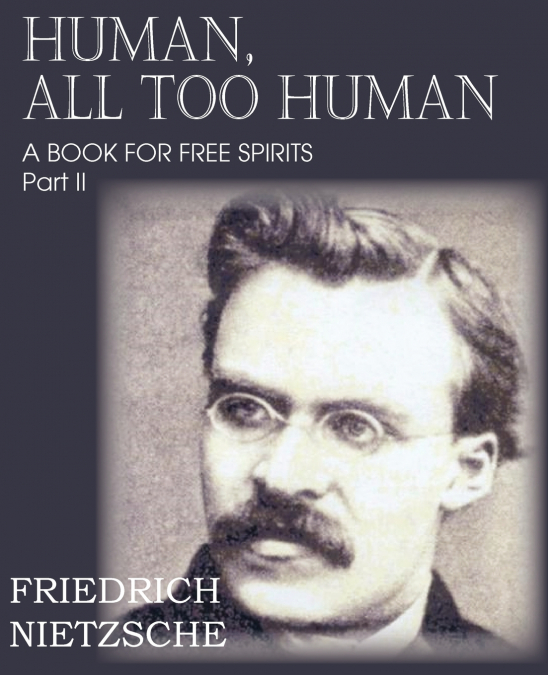
FRIEDRICH NIETZSCHE / Paul V. Cohn
 Donde los libros
Donde los libros
 Librería 7artes
Librería 7artes
 Librería Elías (Asturias)
Librería Elías (Asturias)
 Librería Kolima (Madrid)
Librería Kolima (Madrid)
 Librería Proteo (Málaga)
Librería Proteo (Málaga)
The publication of Human, All Too Human extends over the period 1878-1880. Of the two divisions which constitute the Second Part, 'Miscellaneous Maxims and Opinions' appeared in 1879, and 'The Wanderer and his Shadow' in 1880, Nietzsche being then in his thirty-sixth year. The Preface was added in 1886. The whole book forms Nietzsche’s first lengthy contribution to literature. His previous works comprise only the philological treatises, The Birth of Tragedy, and the essays on Strauss, Schopenhauer, and Wagner in Thoughts out of Season.With the volumes of Human, All Too Human Nietzsche appears for the first time in his true colours as philosopher. His purely scholarly publications, his essays in literary and musical criticism-especially the essay on Richard Wagner at Bayreuth-had, of course, foreshadowed his work as a thinker.The title of the book may be explained from a phrase in Thus Spake Zarathustra: 'Verily, even the greatest I found-all-too-human.' The keynote of these volumes is indeed disillusion and destruction. Nor is this to be wondered at, for all men must sweep away the rubbish before they can build. Hence we find here little of the constructive philosophy of Nietzsche-so far as he had a constructive philosophy. Friedrich Wilhelm Nietzsche was a 19th-century German philosopher, poet, composer and classical philologist. He wrote critical texts on religion, morality, contemporary culture, philosophy and science, displaying a fondness for metaphor, irony and aphorism. 3